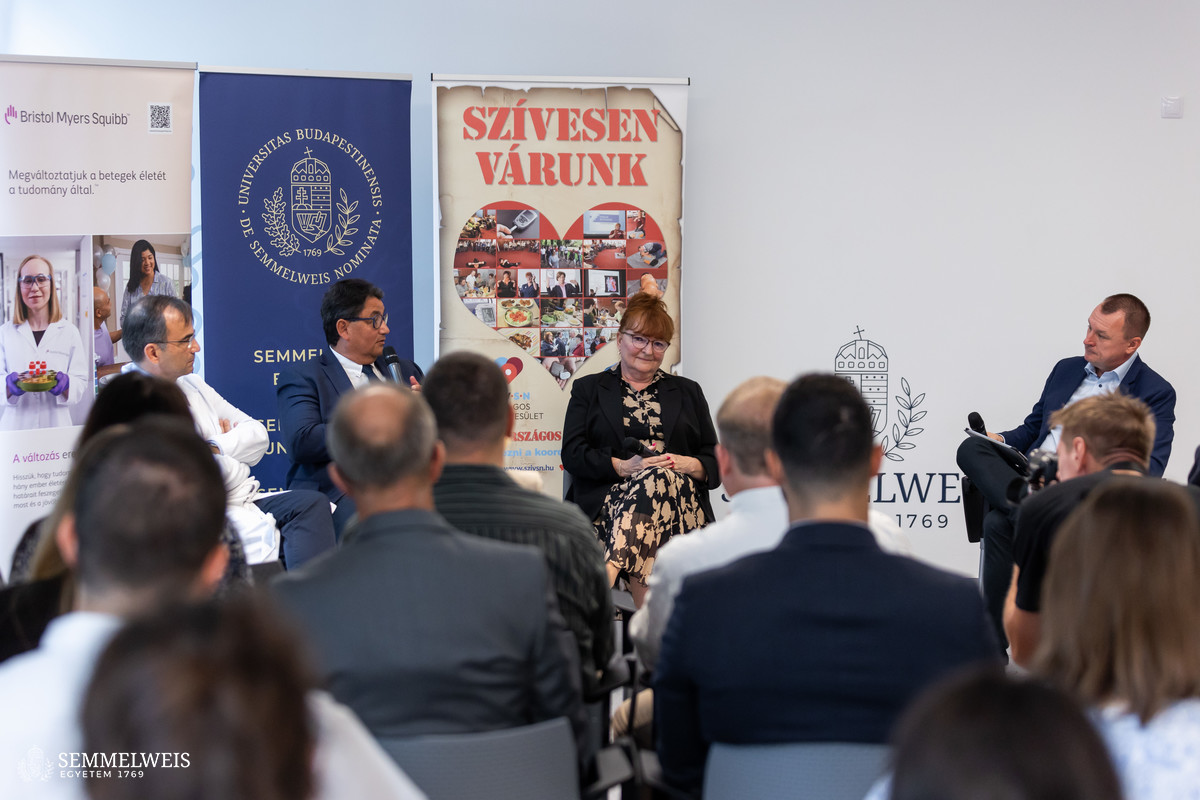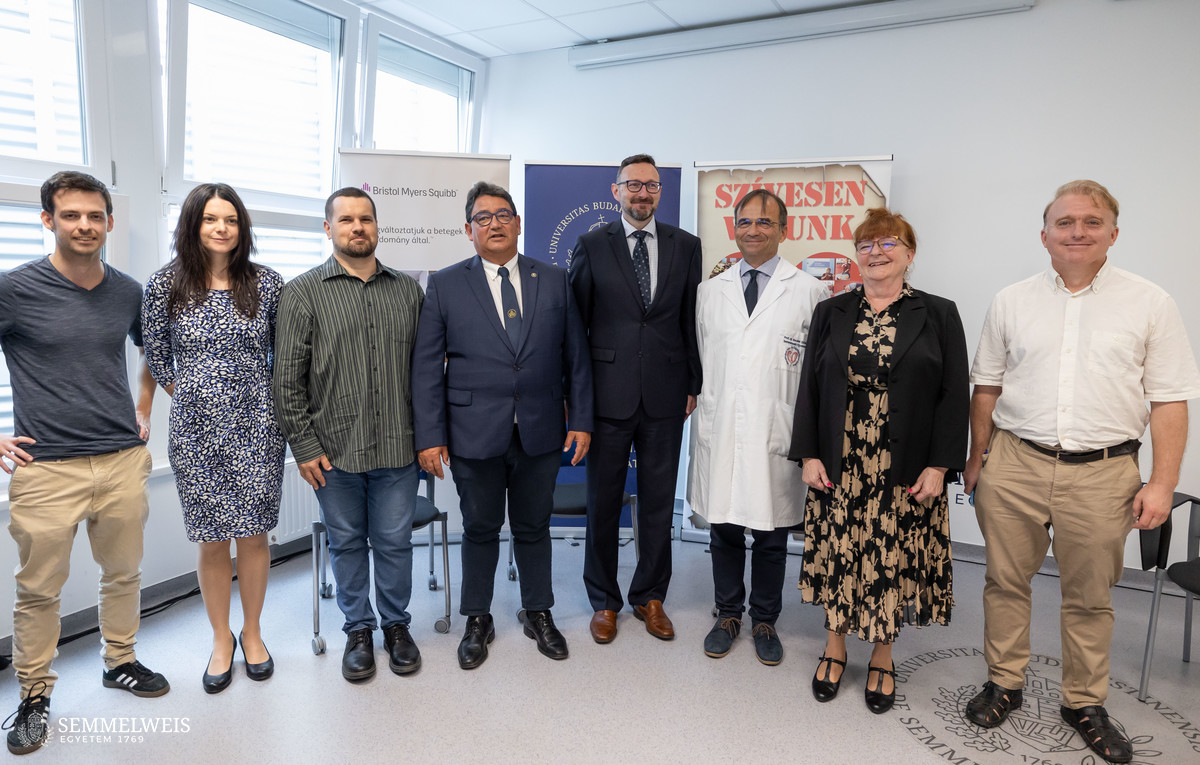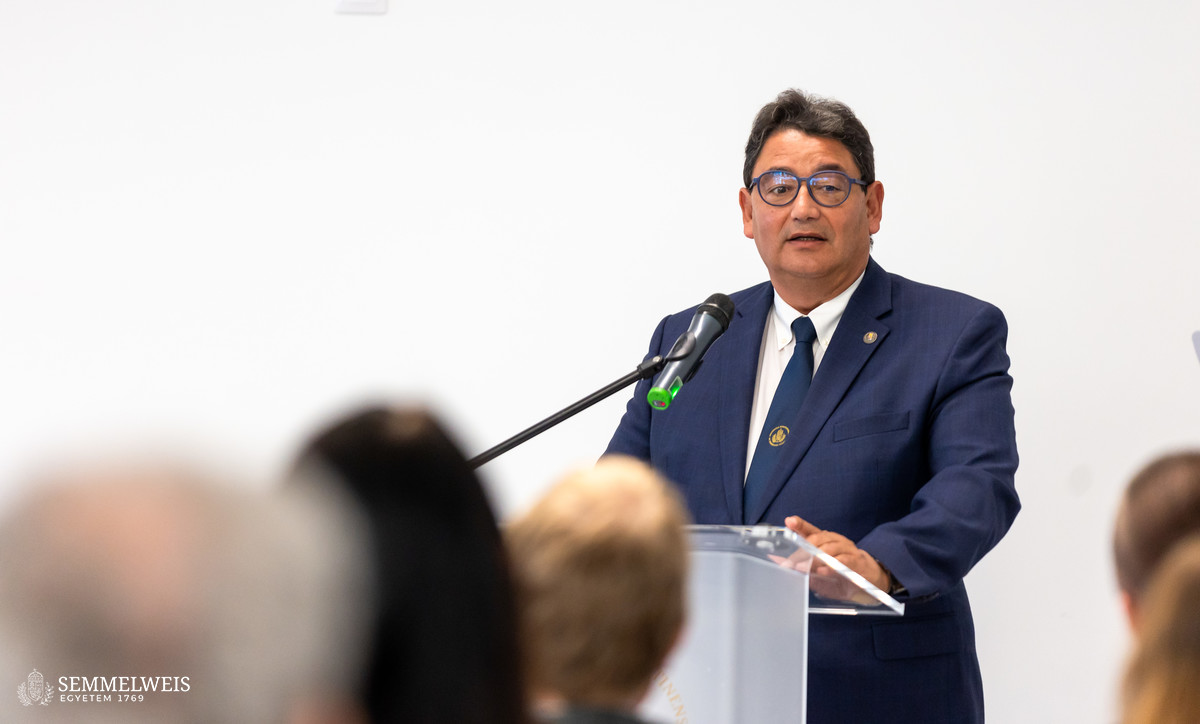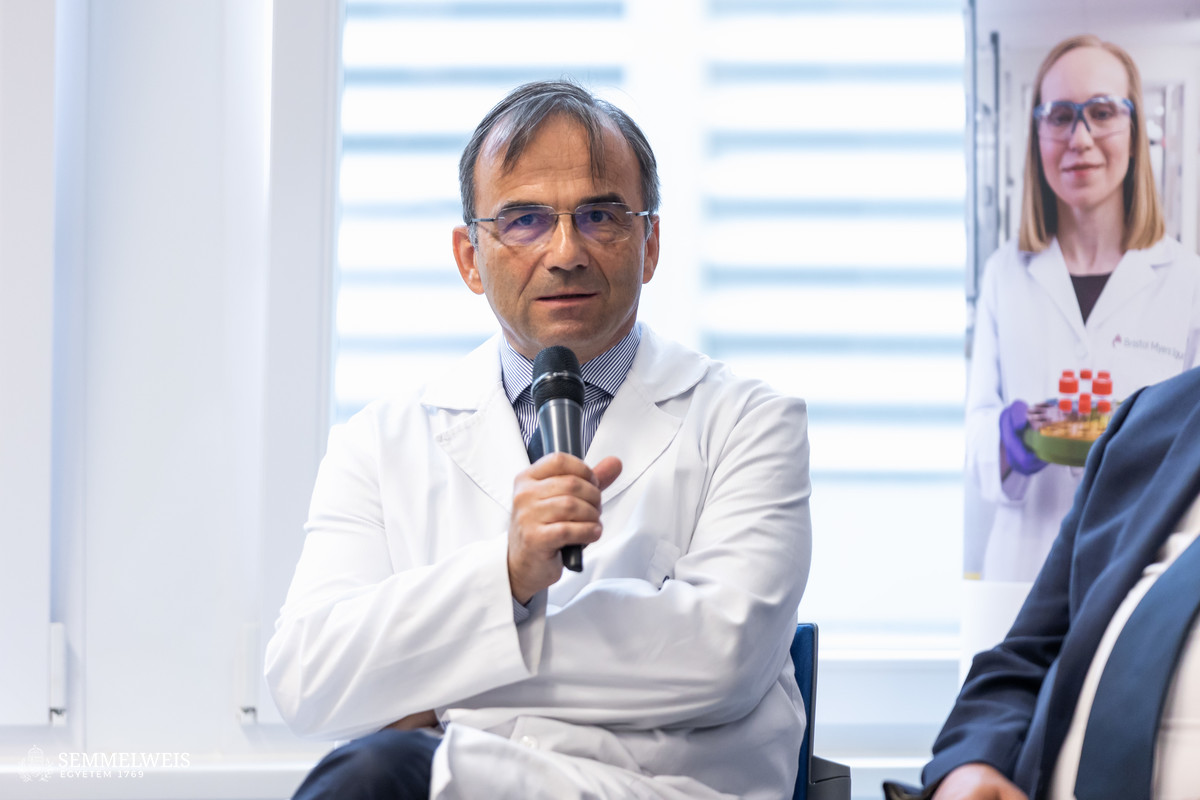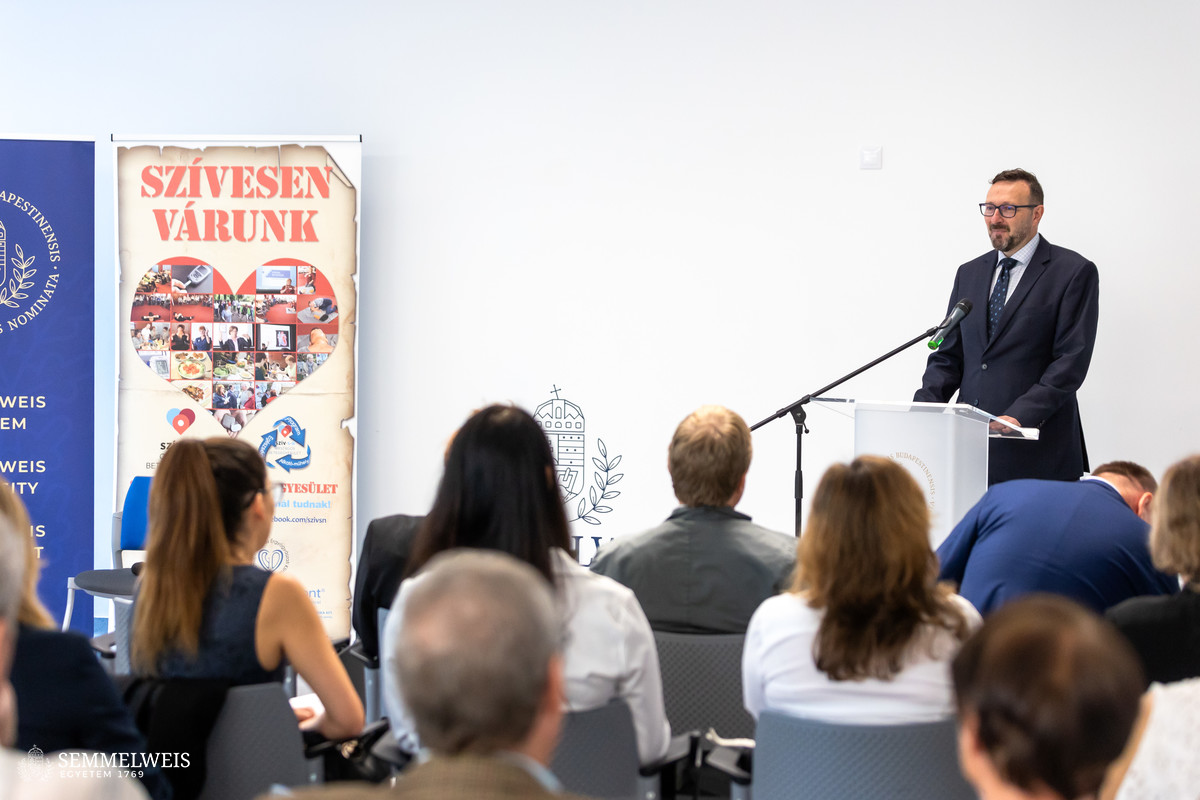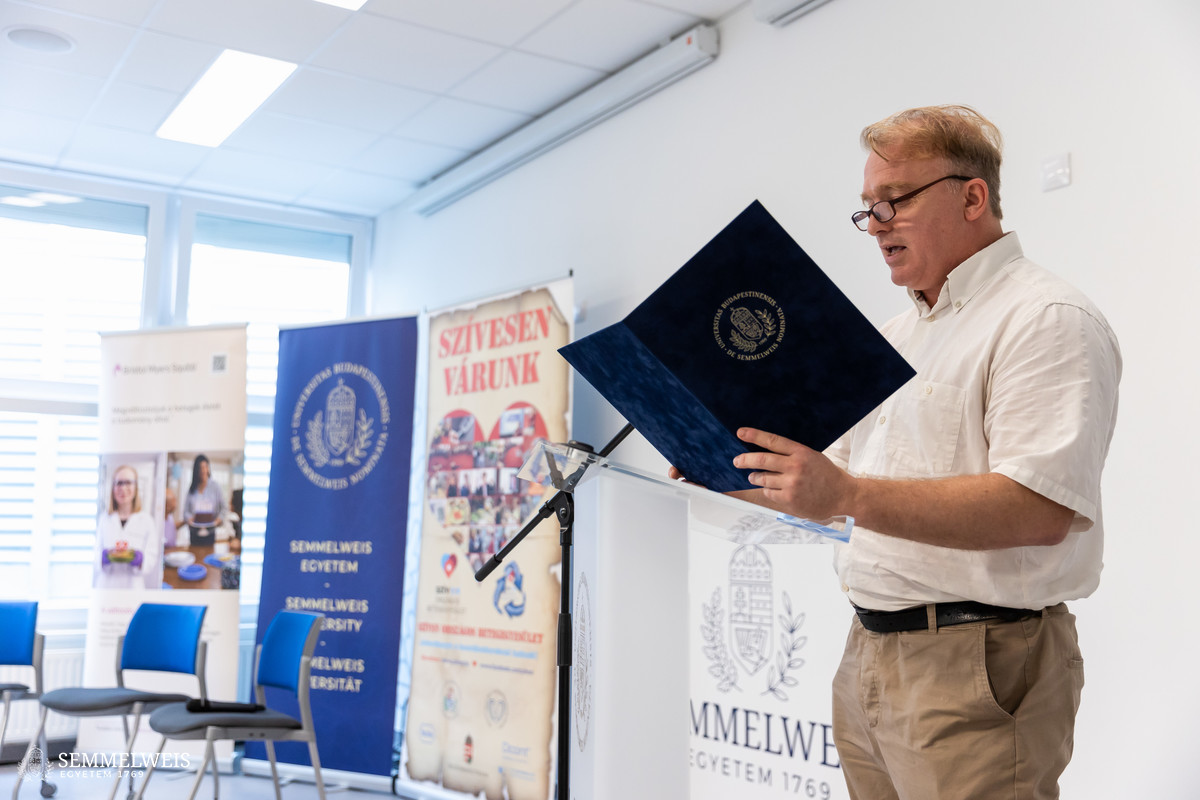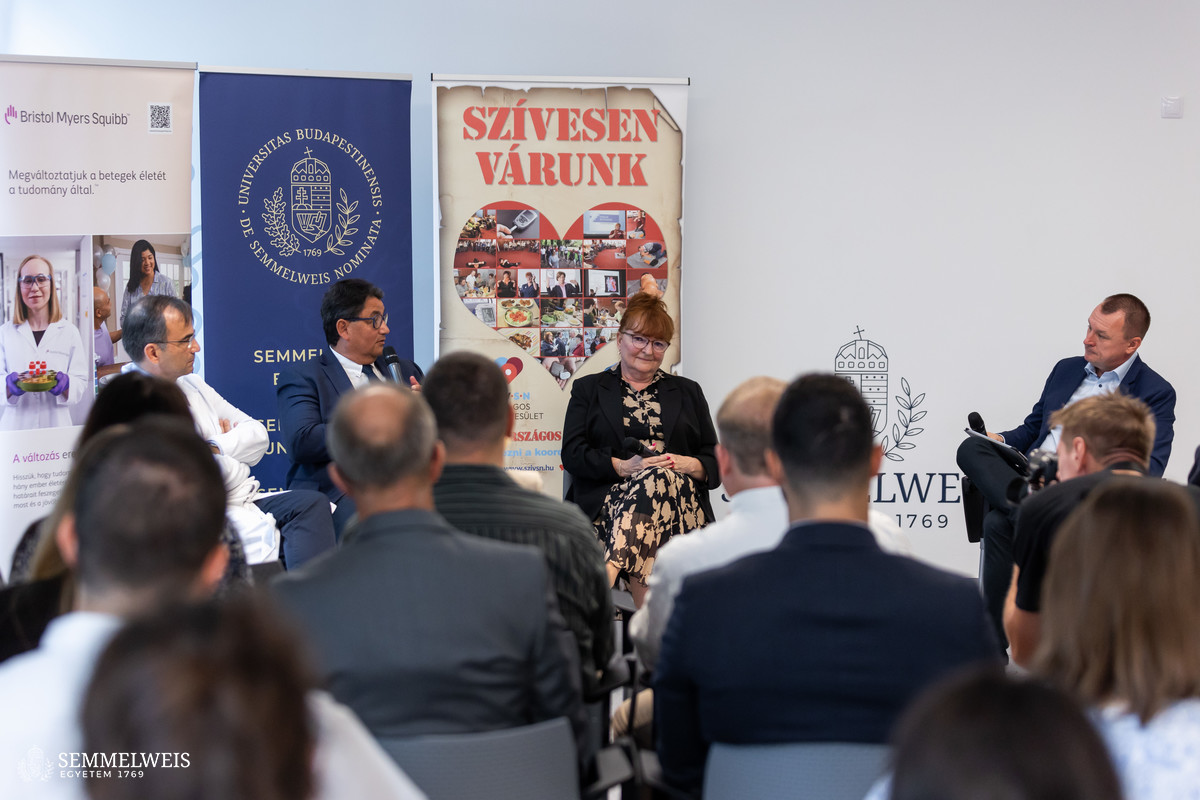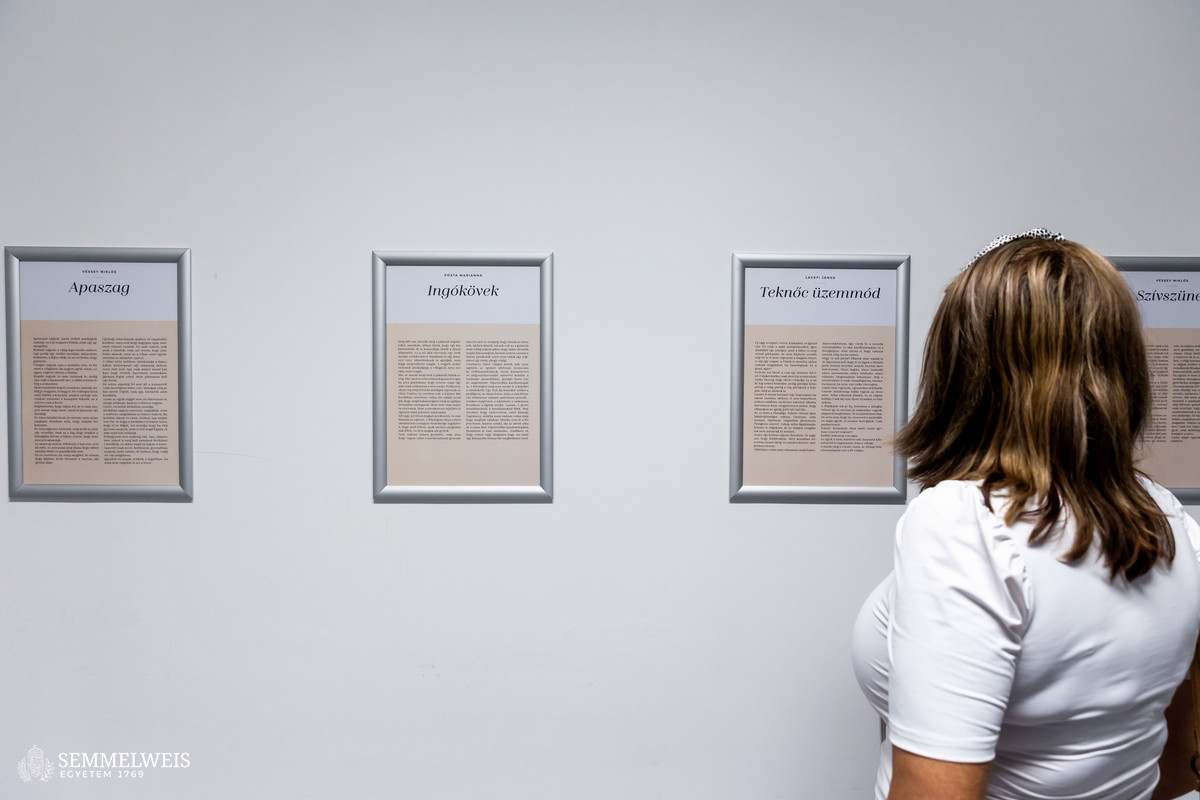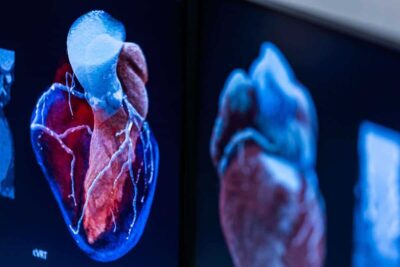The most common cardiovascular disease is coronary heart disease, which, although not a clearly dominant hereditary illness, requires special attention in case it clusters in the same family. The role of heredity is even more important in the case of congenital, structural or certain ion channel-related diseases, explained Dr. Béla Merkely at an event on inherited heart conditions organized on the occasion of World Heart Day by Bristol Myers Squibb biotech pharmaceutical company at the Városmajor Heart and Vascular Center.
The rector explained that in Hungary, one in 200 infants is born with a inherited heart condition, which can result in cardiomyopathy, a process deforming the heart muscle, or may even generate life-threatening irregular heartbeat. With a 50 percent chance of inheritance, the family is also screened to see if there is a risk of developing the disease, which can be measured in several ways, the rector added. Dr. Béla Merkely revealed that a scientific research at Semmelweis University is identifying 174 genes responsible for heart disease in cases of probable hereditary diseases. If a genetic defect is detected in a given family, further testing in that family will only focus on that given gene. This genetic testing is not cheap, but it is no longer too expensive, the rector noted. If the heart disease is hereditary – which can reach up to 50 percent in the case of cardiomyopathies – prevention, adherence to lifestyle advice and regular medical check-ups are of utmost importance, emphasized Dr. Béla Merkely. The rector added that hypertrophic cardiomyopathy – a predominantly hereditary disease that can develop at any time during life – can present as a life-threatening arrhythmia at first and a decrease in exercise capacity at later stages. If tests confirm heredity, however, there is a chance of preventing the disease with medication, he pointed out.
The rector mentioned that a cardiogenetics outpatient department has been established at the Városmajor Heart and Vascular Center, with a special focus on hereditary forms of cardiovascular diseases. “Our important task is to examine athletes, because in their case, hypertrophic cardiomyopathy can initially boost success in sports, but it also carries a significant risk of sudden cardiac arrest,” said the rector, emphasizing that the patient is always at the center of the work at Semmelweis University, and the importance of the human aspect of medicine is also demonstrated by the writings that were exhibited in the corridor of the center.
The World Heart Day is a particularly good occasion to highlight the possibility of screening the family with appropriate diagnostics to detect in advance if a family member is at increased risk of the disease, and fortunately there are now medications available to reduce this risk, said Dr. Zénó Kuluncsics, Medical Director at Bristol Myers Squibb.
On the occasion of World Heart Day, a special educational campaign was also launched with the participation of contemporary Hungarian writers to raise awareness of heart diseases of genetic origin, including cardiomyopathies. Like every family, every heart has a story, and this idea inspired the unique short stories that decorate the walls of the Városmajor Heart and Vascular Center of Semmelweis University. The stories by Attila József Prize winner János Lackfi, Tamás Ijjas, Marianna Posta and Miklós Véssey are inspired by the stories of real-life heart patients and their relatives, with the aim of raising awareness of inherited heart conditions and giving hope to all those affected. At the event, János Lackfi read out his short story written for the exhibition.
One of the aims of the World Heart Day is to raise awareness of the disease and the possibilities of prevention, pointed out Dr. Dávid Becker, President of the Hungarian Society of Cardiology and Deputy Director of the Városmajor Center, adding that prevention can start from childhood. In addition, medicines that were previously unavailable have also come into view, and the possibilities of treating cardiological diseases have increased exponentially, noted Dr. Dávid Becker, who recommended the ’Szívderítő’ informative website of the Hungarian Society of Cardiology for those concerned.
Dr. Béla Merkely drew attention to the exposure of athletes, as about 4 or 5 in every 100,000 athletes experience sudden cardiac arrest. There are some congenital heart diseases in which a thickened myocardium is even an advantage at the beginning, for junior athletes, he explained.
Building a bridge between professionals and patients is the primary task of the SZIVSN National Patients’ Association, according to its president. Zsuzsanna Bernáth-Lukács stressed that the association aims to demonstrate through personal stories that it is possible to recover even after a heart transplant.
People with hypertrophic cardiomyopathy have a higher risk of sudden cardiac arrest, a frequent underlying condition for sudden cardiac death in young athletes, but this risk can be reduced by early diagnosis and prevented by lifestyle changes adapted to the appropriate management of the disease. However, in addition to physical symptoms such as chest pain, breathing difficulties and fatigue, inherited heart conditions can often cause significant psychological distress and depression, and can interfere with the patient’s social relationships. Besides reducing the risk factors, experts advise everyone to pay attention to their heart, their symptoms, to seek information from reliable sources and to learn as much as possible about the disease so that they can seek medical advice in time.
Anita Szepesi
Translation: Judit Szabados-Dőtsch
Photo: Attila Kovács – Semmelweis University
